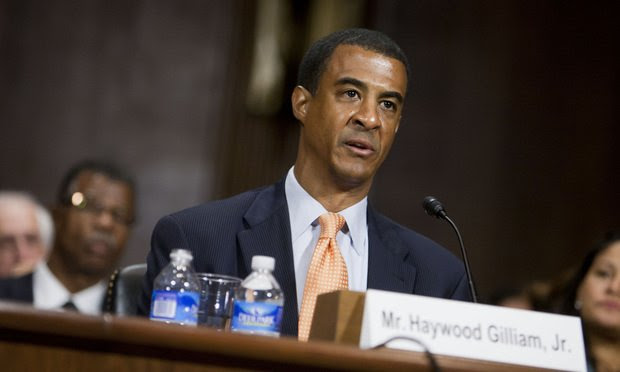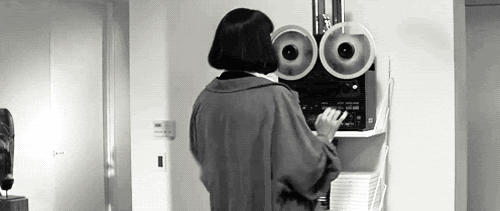Skilled in the Art: Alice Van Winkle Awakes After Long Slumber + The Magnetic Tape Wars Call a Truce
Facebook and Twitter are trying to squash the last remnants of a seven-year-old patent case.
July 26, 2019 at 07:33 PM
6 minute read
Welcome to Skilled in the Art. I'm Law.com IP reporter Scott Graham. Here's a quick breakdown of today's briefing:
• Facebook and Twitter are trying to squash the last remnants of a seven-year-old patent case.
• Sony and Fujifilm have settled their magnetic tape wars.
• Could patents declared ineligible years ago rise from the dead?
As always feel free to email me your own thoughts and follow me on Twitter.
 Judge Haywood Gilliam Jr. (Photo by Diego Radzinschi/ALM)
Judge Haywood Gilliam Jr. (Photo by Diego Radzinschi/ALM)
Wake Up and Smell the Section 101 Rulings
U.S. District Judge Haywood Gilliam Jr. is presiding over the Rip Van Winkle of patent cases.
Non-practicing entity Software Rights Archive (SRA) sued Facebook and Twitter over search technology in the Northern District of California in 2012. But the cases have been in a deep slumber for six years while the social media companies persuaded the Patent Trial and Appeal Board and the Federal Circuit to invalidate 27 of the 30 challenged claims.
Now Judge Gilliam, who inherited the cases from Judge Ronald Whyte, has lifted the stay. And he made clear at a Thursday hearing that he's eager for resolution. “I don't have a lot of cases that preceded me coming onto the bench,” noted Gilliam, who joined the court in 2014.
Facebook and Twitter are trying to help by bringing an Alice motion challenging SRA's three remaining claims. But SRA points out that the patent eligibility landscape has turned upside-down since 2013. Alice wasn't even on the books—let alone the cases interpreting it and re-interpreting it—when Whyte forced SRA to choose its 30 claims and then stayed the cases.
William Parrish of Hardy Parrish Yang argued Thursday that SRA should now be allowed to file an amended complaint with more specific allegations about patent eligibility—and should be given a couple more months to figure out which additional claims it might wish to assert.
“Any problem that happened is a problem of their making,” said Parrish, arguing that Facebook and Twitter waited until after the stay was lifted in May to provide four terabytes of discovery.
The three patents at issue in Software Rights Archive v. Facebook outline improvements on text-based searching through the use of indirect relationships between documents. SRA's suit contends that “99% of the search industry”—notably including Google—has licensed the patents to the tune of “multiple tens of millions of dollars.”
Facebook and Twitter point out in their briefs that when the Federal Circuit heard argument in the PTAB appeal, Judge Bob Mayer observed that any surviving claims are “clearly a 101.” (Of course, Judge Mayer has made clear that, in his view, all software patents should be ineligible.)
“Our Alice motion is ready. It's ready for the three claims that are remaining.” Keker, Van Nest & Peters partner Sharif Jacob argued for the tech companies Thursday. “It's clear today that the plaintiffs are not ready.”
Gilliam observed that the PTAB has “decimated” SRA's claims, and that adding new ones might mean “the stay and the IPR didn't help much, which would be a major problem.” But given the unusual circumstances, he agreed that SRA is entitled to amend its complaint. And if it can decide within one month which other claims it wants to add, he'll consider whether there's good cause for doing so.
Cooley partner Heidi Keefe argued for Facebook that SRA has had plenty of time to choose its claims, both before and after the stay. Gilliam said he'll take that into account when deciding good cause.
“I understand the defendants' frustration. I can hear it,” he said. “I'm not concerned about who's to blame. I'm more concerned about this case needs to end.”
He also warned the parties against “continuing to hold stuff in your pocket, so that we're back here in 10 more years.”

Sony and Fujifilm Call Off the Tape Wars
The magnetic tape wars are over. Sony Corp. and Fujifilm Corp. have settled a long-running battle across the International Trade Commission, the PTAB and the Federal Circuit that was threatening to disrupt the cloud computing industry.
If you're thinking, “Didn't magnetic tape go out of style 30 years ago?” you're almost right. Fujifilm argued in court papers that the industry was on the “brink of extinction” in the 1990s until its engineers came up with inventions for expanding capacity and improving signal to noise. Magnetic tape has since remained a preferred medium for backing up cloud data.
Fujifilm and Sony sued each other in the ITC, with each arguing that the other was infringing its patented improvements. Both managed to exclude some of the others' products—most saliently, Sony's cutting edge LTO-8 tape media. The companies also brought approximately 20 IPRs challenging the validity of each others' patents in the PTAB.
With many of those actions now on appeal, the two Japanese companies have called a truce. They informed the Federal Circuit on Thursday that they've entered into a worldwide resolution and cross-license.
A Baker Botts team headed by partners Robert Scheinfeld, Robert Maier, Jennifer Tempesta and Lisa Kattan represented Fujifilm in the ITC actions. Partners Eliot Williams, Neil Sirota and Paul Ragusa led the PTAB side of the litigation.
Sony was represented by Wolf, Greenfield & Sacks; Quinn Emanuel Urquhart & Sullivan; Smith Baluch and Foster, Murphy, Altman & Nickel.
 Photo courtesy of AMC Studios
Photo courtesy of AMC Studios
Zombie Patents: The 101 Sequel?
On Tuesday I wrote about how patents declared unenforceable more than a decade ago for inequitable conduct had been brought back to life thanks to an intervening change in the law. Ropes & Gray partner Matt Rizzolo points out in a blog post that the same thing could happen with patents that district courts have declared ineligible under Alice, if Congress were to amend Section 101 and not make it prospective only.
“Remember folks, a district court doesn't 'invalidate' or 'cancel' a patent,” Rizzolo notes. “Only the Patent Office does that.”
That's all from Skilled in the Art this week. I'll see you all again on Tuesday.
This content has been archived. It is available through our partners, LexisNexis® and Bloomberg Law.
To view this content, please continue to their sites.
Not a Lexis Subscriber?
Subscribe Now
Not a Bloomberg Law Subscriber?
Subscribe Now
NOT FOR REPRINT
© 2025 ALM Global, LLC, All Rights Reserved. Request academic re-use from www.copyright.com. All other uses, submit a request to [email protected]. For more information visit Asset & Logo Licensing.
You Might Like
View All
Skilled in the Art With Scott Graham: I'm So Glad We Had This Time Together

Design Patent Appeal Splinters Federal Circuit Panel + Susman Scores $163M Jury Verdict + Finnegan Protects Under Armour's House
Trending Stories
- 1ACC CLO Survey Waves Warning Flags for Boards
- 2States Accuse Trump of Thwarting Court's Funding Restoration Order
- 3Microsoft Becomes Latest Tech Company to Face Claims of Stealing Marketing Commissions From Influencers
- 4Coral Gables Attorney Busted for Stalking Lawyer
- 5Trump's DOJ Delays Releasing Jan. 6 FBI Agents List Under Consent Order
Who Got The Work
J. Brugh Lower of Gibbons has entered an appearance for industrial equipment supplier Devco Corporation in a pending trademark infringement lawsuit. The suit, accusing the defendant of selling knock-off Graco products, was filed Dec. 18 in New Jersey District Court by Rivkin Radler on behalf of Graco Inc. and Graco Minnesota. The case, assigned to U.S. District Judge Zahid N. Quraishi, is 3:24-cv-11294, Graco Inc. et al v. Devco Corporation.
Who Got The Work
Rebecca Maller-Stein and Kent A. Yalowitz of Arnold & Porter Kaye Scholer have entered their appearances for Hanaco Venture Capital and its executives, Lior Prosor and David Frankel, in a pending securities lawsuit. The action, filed on Dec. 24 in New York Southern District Court by Zell, Aron & Co. on behalf of Goldeneye Advisors, accuses the defendants of negligently and fraudulently managing the plaintiff's $1 million investment. The case, assigned to U.S. District Judge Vernon S. Broderick, is 1:24-cv-09918, Goldeneye Advisors, LLC v. Hanaco Venture Capital, Ltd. et al.
Who Got The Work
Attorneys from A&O Shearman has stepped in as defense counsel for Toronto-Dominion Bank and other defendants in a pending securities class action. The suit, filed Dec. 11 in New York Southern District Court by Bleichmar Fonti & Auld, accuses the defendants of concealing the bank's 'pervasive' deficiencies in regards to its compliance with the Bank Secrecy Act and the quality of its anti-money laundering controls. The case, assigned to U.S. District Judge Arun Subramanian, is 1:24-cv-09445, Gonzalez v. The Toronto-Dominion Bank et al.
Who Got The Work
Crown Castle International, a Pennsylvania company providing shared communications infrastructure, has turned to Luke D. Wolf of Gordon Rees Scully Mansukhani to fend off a pending breach-of-contract lawsuit. The court action, filed Nov. 25 in Michigan Eastern District Court by Hooper Hathaway PC on behalf of The Town Residences LLC, accuses Crown Castle of failing to transfer approximately $30,000 in utility payments from T-Mobile in breach of a roof-top lease and assignment agreement. The case, assigned to U.S. District Judge Susan K. Declercq, is 2:24-cv-13131, The Town Residences LLC v. T-Mobile US, Inc. et al.
Who Got The Work
Wilfred P. Coronato and Daniel M. Schwartz of McCarter & English have stepped in as defense counsel to Electrolux Home Products Inc. in a pending product liability lawsuit. The court action, filed Nov. 26 in New York Eastern District Court by Poulos Lopiccolo PC and Nagel Rice LLP on behalf of David Stern, alleges that the defendant's refrigerators’ drawers and shelving repeatedly break and fall apart within months after purchase. The case, assigned to U.S. District Judge Joan M. Azrack, is 2:24-cv-08204, Stern v. Electrolux Home Products, Inc.
Featured Firms
Law Offices of Gary Martin Hays & Associates, P.C.
(470) 294-1674
Law Offices of Mark E. Salomone
(857) 444-6468
Smith & Hassler
(713) 739-1250










